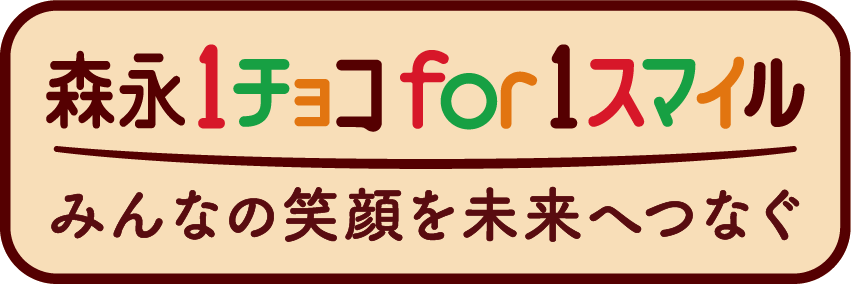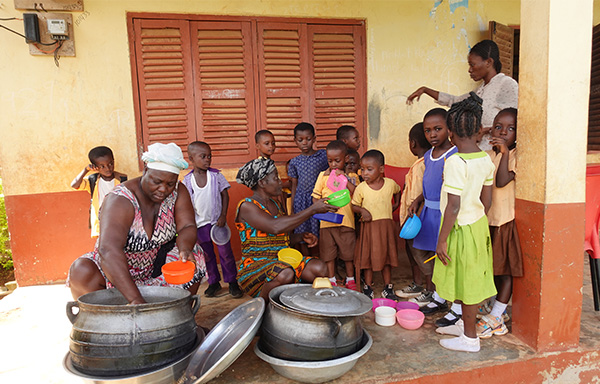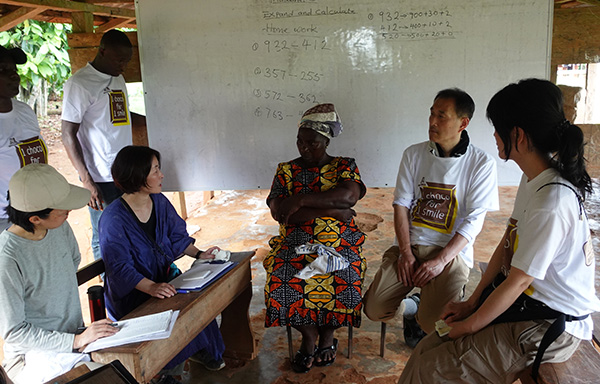Based on the Morinaga Group Procurement Policy, we intend to contribute to the realization of a sustainable society by building transparent, fair and equitable relationships with our business partners, and cooperating with them to conduct socially-responsible and environment-friendly procurement activities.
In order to realize food safety and reliability as well as a sustainable society, the Morinaga Group endeavors to build fair and equitable relationships with our business partners and carry out procurement activities that are considerate of society and the environment.
(Established: May 2018)
100% for cacao beans, palm oil, and paper*1
*1Scope: Group consolidated basis except Food Merchandise. Paper covers product packaging only.
| Targets | Results | Targets | |
|---|---|---|---|
| FY2024 | Medium-term targets | 2030 | |
| Morinaga & Co., Ltd. (non-consolidated)*2 |
Morinaga & Co., Ltd. (non-consolidated)*2 |
Group consolidated basis*3 |
|
| Cacao beans | 78% | FY2025 100% | 100% |
| Palm oil | 100% | FY2023 100% | 100% |
| Paper*4 | 100% | FY2022 100% | 100% |
*2Scope: Morinaga products in Japan.
*3Scope: Group consolidated basis except Food Merchandise.
*4Paper covers product packaging only.
Cacao beans, a key raw material for chocolate, are associated with a range of social issues including human rights issues such as working conditions, poverty, child labor, and environmental issues such as deforestation. Since FY2020, we have been promoting the procurement of certified cacao beans (e.g., Cocoa Horizons–certified cacao*1 supplied by the Barry Callebaut Group) that contributes to sustainable procurement.

We work to understand the realities of cacao farmers by such means as having directors in charge visit cacao sapling farms.

Inspection Scenery
In order to deliver high quality chocolate to our customers, we are particular about the taste and aroma of the cacao beans used as raw materials.
At times, our researchers interact with partners in producing regions to jointly develop high-quality cacao beans. In Vietnam, for example, we worked with the partners, including farmers, to pursue optimal quality control and fermentation conditions for cacao beans, leading to quality improvement and stable income for farmers.

Interacting with the production partners
in front of the cacao pods

Ensuring the quality with the partners

Drying cacao beans on the equipment
donated by Morinaga & Co., Ltd.
"1 Chocolate for 1 Smile" is an initiative that we have been working on since 2008 to improve the sustainability of chocolate. We use a part of sales of our products to support efforts to improve the educational environment for children who will lead the future of cacao producing countries such as Ghana, to address child labor issues, and to raise the income of cacao farmers. In addition to donations made throughout the year, we also implement customer-participatory support activities in which "actions" such as purchasing products or participating in campaigns lead to donations.
Our support partners are Plan International, an international NGO, and ACE, an NGO born in Japan.
Employees also visit support areas and engage in dialogue with cocoa farmers, adults, and government officials, as well as children of cocoa farmers.
| Content of support | Number |
|---|---|
| Total amount of support | 338,567,446 yen |
| Number of years supporting | 17 years |
| Number of countries, villages and settlements that we provided support | 6 countries, and 183 villages and settlements |
| Number of children that we provided support | 17,503 |
| Number of children of cacao producing countries free from child labor | 627 |
| Number of schools that we provided support | 91 |
| Number of adults who learned about issues such as education and child labor through the project | 7,077 |


Ghanaian children receiving school meals provided by the support

Dialogue between our employees and cocoa farmers
TAICHIRO MORINAGA launched a product using chocolate made from cacao produced in a region in Ghana that had been supported through the above activities in Ghana. TAICHIRO MORINAGA Cookie Selection with CACAO went on sale in February 2025 for a limited time and in limited quantities. 100 yen from the sale of 1 product will be used for activities to support children in the cacao region.

For more details, please refer to our press release.
Morinaga supports the activities of the World Cocoa Foundation (WCF)—which promotes various programs aimed at providing technical guidance and educational support for cacao farmers, as well as realizing societies without child labor, and provide support for cacao-producing countries through our activities as a WCF member.

Providing technical guidance to cacao farmers
The Morinaga Group endorses the Action Plan to Eliminate Child Labour in the Cocoa Industry, a cacao industry issue promoted by Platform for Sustainable Cocoa in Developing Countries, for which the Japan International Cooperation Agency (JICA) serves as the secretariat. This platform is a place where Japanese companies, non governmental organisations (NGO), and other organizations related to the cacao industry collaborate to solve issues facing the industry such as farmer poverty, deforestation, and child labor. The goal is to realize a sustainable cacao industry. By using the Action Plan to Eliminate Child Labour in the Cocoa Industry as a practical guidance for understanding, preventing, and reducing child labor, which is one of the major issues related to business and human rights, we will increase efforts to promote human rights relateed to supply chain.
As a member of the "Sustainable Cacao Platform in Developing Countries," we will continue our efforts to resolve these issues.

While palm oil is used in a wide range of products, such as processed foods and detergents, illegal logging and human rights problems in the producing regions have become social issues. The Morinaga Group has promoted the procurement of certified palm oil (RSPO*-certified raw materials) and achieved 100% sustainable procurement of palm oil used for our products in Japan in March 2024. We will continue to work on promoting the sustainable procurement of raw materials.

Japan relies on imports for around 70 percent of the paper raw materials it uses, and the incorporation of illegal timber products into these raw materials has become an issue. The Group asims to help prevent global warming by making effective use of timber resources that are not associated with illegal logging or destruction of ecosystems, and are not harmful to the environment or local communities. In FY2023, we completed the switch to sustainable paper in all our products in Japan. We will continue to promote the sustainable procurement of raw materials.

We will also examine measures for other raw materials believed to pose new risks in the future.